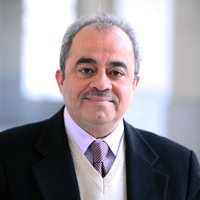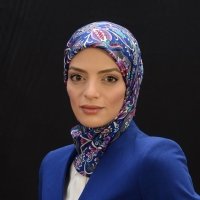Quo Vadis Egypt?

Three experts discussed the current political situation in Egypt and the challenges it faces in the aftermath of the 2013 overthrow of President Mohamed Morsi and the referendum vote on the new constitution.
On January 30, 2014, the Middle East Program of the Woodrow Wilson Center hosted an event “Quo Vadis Egypt?” with Emad Shahin, Professor of Public Policy, School of Global Affairs and Public Policy, American University in Cairo; Dalia Fahmy, Professor of Political Science, Long Island University-Brooklyn; and Mohamed Elmasry, Professor and Graduate Director, Department of Mass Communication, American University in Cairo. Haleh Esfandiari, Director of the Middle East Program at the Wilson Center, moderated the event.
Shahin started his talk by discussing the tumultuous state of affairs in Egypt at the moment. He gave an anecdotal example of a mother who had reported her son to Egyptian authorities because she felt it was safer for him in jail than on the streets. Shahin indicated that the military had justified the ouster of Morsi for two reasons: 1) to prevent further instability and avert a civil war in the country; and 2) to establish a roadmap that would put the country back on the road to democracy. He noted, however, that Egypt is more polarized today than any time before, emphasizing the need for dialogue and negotiation among Egyptians. On the economy, Shahin noted the need for economic recovery and a decreased reliance on foreign aid, but that the country is not able to recover at this time. A concerning issue, according to Shahin, is the change in the sequence of elections—instead of having the parliamentary elections before the presidential elections, the government plans to hold presidential elections first, leading to a strong executive body that could manipulate the election process. He finally emphasized the need for inclusiveness and respect for human rights.
Fahmy began by explaining the status of the rule of law in Egypt, noting that there has been an absence of the rule of law in the past three years in the country. She said that according to the UN definition, the rule of law should promote social justice, and it falls short of that in Egypt. Fahmy also mentioned that the 50 member committee that worked on the amendment of the constitution was not reflective of Egypt’s population, having only five women and very few other minorities. She added that constitutions should unify people, but Egypt’s constitution has been a dividing factor. Fahmy believes that if General el-Sisi ran he would win, and this would create a new party that would enjoy majority support and discourage and reduce participation by the opposition. She concluded by saying that many, herself included, now believe that the Arab Spring has turned into an Arab Winter, or worse.
Elmasry stated that American journalism is marked by objectivity, balance, and emotional detachment from the stories being covered. In Egypt, however, he noted that journalism education is very poor, resulting in a lack of professionalism in reporting that has come into play after the revolution. He added that during Morsi’s presidency, the media portrayed Morsi and the Muslim Brotherhood as incompetent and as the cause of ruining the country. Elmasry emphasized that there was, indeed, mass discontent in Egypt, but most polls, including one by the Pew Research Center that was released a few days before the overthrow of Morsi, indicated that people were split with almost half of the country on either side. He also referred to the measures taken by the military regime to further isolate the Brotherhood, such as declaring them as a terrorist group and using dehumanizing language against them. All of this makes for a negative journalistic environment in Egypt.
By the Middle East Program
Speakers

Professor of Public Policy and Administration, School of Global Affairs and Public Policy, The American University in Cairo

Hosted By

Middle East Program
The Wilson Center’s Middle East Program serves as a crucial resource for the policymaking community and beyond, providing analyses and research that helps inform US foreign policymaking, stimulates public debate, and expands knowledge about issues in the wider Middle East and North Africa (MENA) region. Read more
